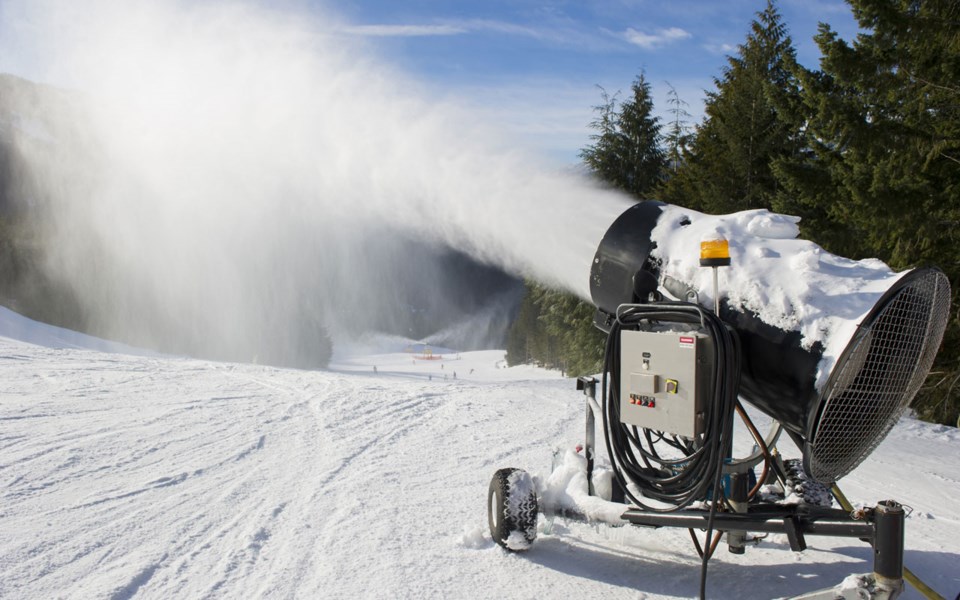Whistler Blackcomb (WB) was given as an example of a major industrial water user in a Feb. 3 report from the Canadian Centre for Policy Alternatives (CCPA).
Ben Parfitt’s report, titled “Thirsting for information: reforms to industrial water use badly needed,” noted that as British Columbia feels the effects of climate-change-induced drought, several industries continue to run the tap.
Using government data, Parfitt’s report analyzes 10 industries: industrial; processing and manufacturing; forestry; snowmaking; mining; fishing; freshwater bottling; oil and gas; well drilling; and lawn, fairway and garden.
Whistler Blackcomb was Parfitt’s example in the snowmaking industry, listed as a “big user.” According to Parfitt’s report, referencing 2019 data from the Ministry of Forests, Lands, Natural Resource Operations and Rural Development, WB has licenced water rights north of 13 million cubic metres for which it paid just over $29,000. He noted that it’s the equivalent of paying $5.62 for every Olympic-sized swimming pool of water.
“It is important to note that all water users may or may not use the maximum amount of water that they are entitled to under their licences,” Parfitt explained in an email. “However, they pay based on the maximums assigned to them. In this case, Whistler Blackcomb had the highest volume of water assigned to it of all users in that category.”
In the bigger picture, Parfitt noted that most industries, with pulp and paper being a notable exception, are not required to meter their water use.
“[A]n overall lack of water metering means that understaffed and underbudgeted provincial civil servants must carry out compliance and enforcement efforts with one arm firmly tied behind their backs,” the report said. “How can they hold companies to account that are withdrawing the equivalent of tens of thousands of Olympic swimming pools’ worth of water when there is no verifiable data to check on?”
The report goes on to suggest five conservation-based fixes for fairer water use.
In a statement, a WB spokesperson said: “Water is a significant component of snowmaking and a critical resource that supports the health of ecosystems and communities. Unlike water use in other industries, most of the water used for snowmaking is non-consumptive. This means that it returns to the local watershed via snowmelt and is then available for immediate use.
“At Whistler Blackcomb, we monitor our water withdrawal to ensure we do not exceed our water rights.”
Whistler Blackcomb declined to share its water usage metrics when asked by Pique in December 2019, though at the time, Grouse Mountain reported “it takes about 180,000 gallons (681,374 litres) of water to cover one acre with one foot (30 centimetres) of snow.”




